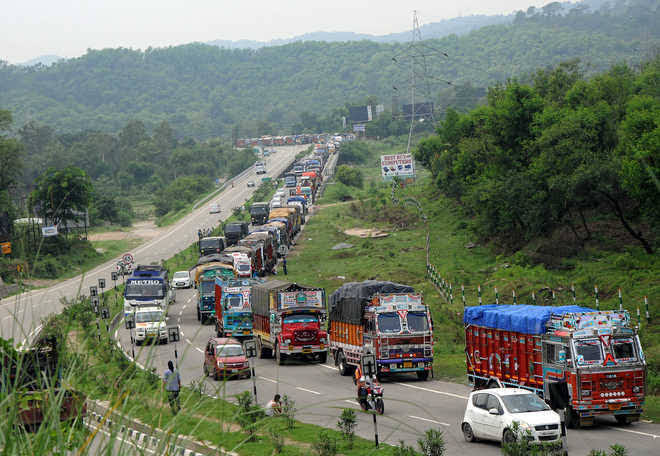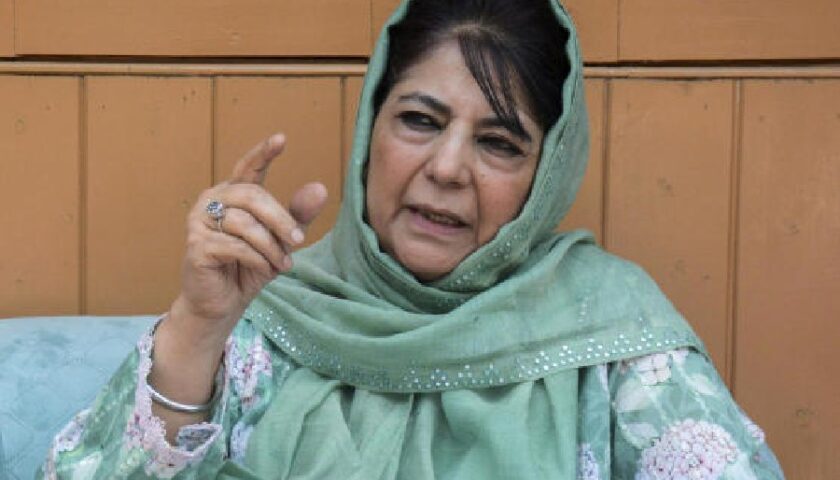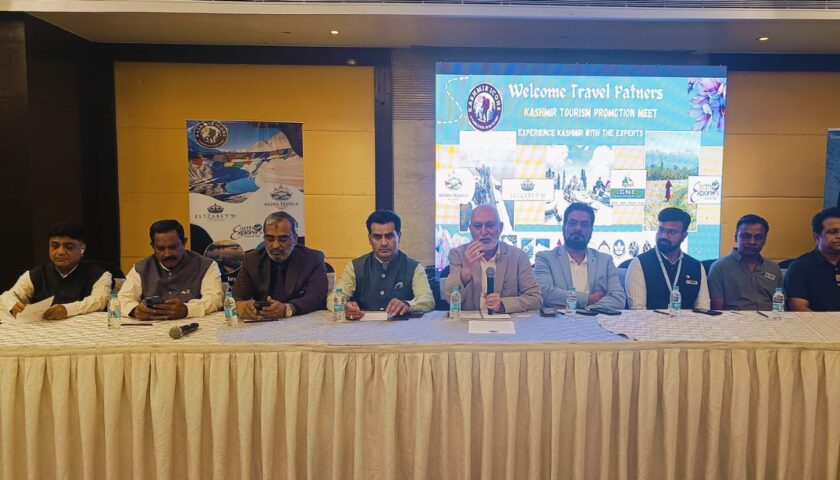A Roadblock Beyond Asphalt
By: Javid Amin | 08 September 2025
In Kashmir, the closure of the Jammu–Srinagar National Highway (NH-44) is nothing new. Year after year, heavy rains, landslides, and fragile mountain terrain interrupt this vital supply line. But the closure in September 2025 triggered a crisis unlike any before.
This time, the Valley was not just cut off from supplies; it was cut off from culture, tradition, and cherished moments. With over 150 weddings postponed, hundreds of livestock stranded, and more than 400 sheep dead inside halted trucks, the issue has taken a deeply personal and emotional turn.
For Kashmiris, this isn’t about meat. It’s about Wazwan, weddings, livelihoods, and respect. It’s about how a single highway can dictate the rhythm of life, and how its failure exposes deeper cracks in governance, logistics, and empathy.
Mutton in Kashmir — More Than Just a Meal
The Soul of Kashmiri Cuisine
In the Valley, mutton is more than food. It is the centerpiece of Wazwan, the ceremonial multi-course feast that defines Kashmiri weddings and festivals. Dishes like Rogan Josh, Rista, Gushtaba, and Yakhni are not just recipes—they are symbols of hospitality, identity, and cultural pride.
A Kashmiri wedding without mutton is unthinkable. It’s like staging a play without actors, or celebrating Eid without prayer.
Consumption Patterns
-
Kashmir consumes over 600 lakh kilograms of mutton annually.
-
Of this, 350 lakh kilograms are imported from outside states (Rajasthan, Punjab, Haryana, Uttar Pradesh).
-
Local production cannot meet demand, making the Valley highly dependent on imports.
👉 When the supply chain halts, culture itself stalls.
The Highway Blockade — What Went Wrong?
NH-44: The Fragile Lifeline
The Jammu–Srinagar highway is Kashmir’s only all-weather surface link. But in practice, it is far from reliable. The Ramban–Banihal stretch is notorious for:
-
Landslides triggered by rain
-
Road subsidence due to weak soil
-
Shooting stones that make travel dangerous
The September 2025 Crisis
-
Sept 1: Landslides force a complete closure.
-
Sept 3: Authorities announce diversion of livestock trucks via the Mughal Road.
-
Sept 5: Reports emerge of stranded trucks and animal deaths.
-
Sept 7: Mutton Dealers Association issues an appeal.
-
Sept 8: Over 150 weddings officially postponed.
Mughal Road Mismanagement
Though promoted as an alternative route, the Mughal Road is poorly managed:
-
Trucks halted at multiple points: Lakhanpur, Nowshera, Sarankote, Poonch.
-
Drivers wait for days with no facilities.
-
Bottlenecks worsen due to limited road width and poor coordination.
👉 What was meant as a backup turned into a nightmare of delays, deaths, and distrust.
Livestock Deaths — The Silent Tragedy
The most heartbreaking part of this crisis is the death of over 400 sheep trapped in stranded trucks.
Causes of Death
-
Suffocation in overcrowded vehicles
-
Starvation due to days-long halts
-
Dehydration in rising September heat
Financial Losses
Dealers report massive losses:
-
Each sheep valued at ₹10,000–15,000
-
Losses running into crores of rupees
-
No compensation or insurance cover in place
Ethical Questions
This is not just an economic tragedy. It raises ethical and governance concerns:
-
Why were animals not given food and water?
-
Why were trucks not escorted or prioritized?
-
Why does no protocol exist for animal welfare in transit?
👉 The deaths represent a failure of empathy as much as infrastructure.
Wedding Season Disrupted — The Human Fallout
The most visible impact of the mutton shortage was on weddings. In a society where weddings are elaborate, culturally significant, and deeply social, postponing them is both emotionally painful and socially embarrassing.
Families in Distress
-
Brides and grooms left in limbo.
-
Parents scrambling to reschedule venues, caterers, and invitations.
-
Guests traveling from afar forced to cancel plans.
Social Embarrassment
In Kashmiri society, weddings are once-in-a-lifetime celebrations. A postponed wedding is seen as a failure of planning, often leading to social gossip, emotional stress, and humiliation for families.
Financial Fallout
-
Advance payments to venues and caterers lost.
-
Additional costs of rescheduling.
-
Event planners and caterers lost lakhs in business.
👉 For many families, this was not just about food shortages. It was about broken dreams and delayed milestones.
Voices from the Valley — Stories of Pain
“We had everything ready—venue, guests, decorations. But without mutton, we had to cancel. It’s humiliating.” — A father from Anantnag
“My truck has been stuck for four days. I’ve lost 40 sheep. Who will pay for this?” — A dealer from Poonch
“This is not just about meat. It’s about respect, tradition, and trust.” — A caterer from Srinagar
These voices reflect a crisis that is not statistical but personal. Behind every postponed wedding and every dead sheep is a story of human loss.
Dealer Demands — An Urgent Appeal
The Mutton Dealers Association has issued a set of urgent demands:
-
Smooth passage of livestock trucks through NH-44 and Mughal Road.
-
Escort vehicles to prevent unnecessary halts.
-
Food and water provisions for stranded animals.
-
Compensation for losses faced by dealers.
So far, the administration’s response has been slow and opaque, with officials insisting supplies are being managed—claims contradicted by ground realities.
Editorial Takeaway — A Systemic Breakdown
This crisis is not just about mutton shortages. It exposes systemic failures:
-
A single fragile highway controls the fate of an entire region.
-
Alternative routes are underdeveloped and poorly managed.
-
No contingency plan exists for perishable goods.
-
Animal welfare protocols are absent.
-
Cultural sensitivities are ignored.
Unless these issues are addressed, every highway closure will continue to bring chaos, cultural disruption, and economic pain.
What Needs to Change — A Reformist Roadmap
✅ Infrastructure Resilience
-
Upgrade NH-44 and Mughal Road into true all-weather corridors.
-
Construct alternate cargo corridors for livestock and perishables.
-
Install real-time traffic and weather monitoring systems.
✅ Livestock Logistics
-
Create dedicated livestock transport lanes.
-
Mandate food, water, and rest protocols during transit.
-
Enforce humane standards through strict penalties.
✅ Cultural Sensitivity
-
Recognize Wazwan’s role in Kashmiri weddings and culture.
-
Include community stakeholders in disaster planning.
-
Provide emergency cultural compensation schemes for disrupted events.
👉 This roadmap is not just about avoiding another meat crisis. It’s about building resilience, empathy, and cultural respect into policy.
FAQs — The Questions Kashmiris Are Asking
Q1: Why is Kashmir so dependent on imported mutton?
Because local production meets only 40% of demand, the rest comes from outside states.
Q2: Could weddings have continued without mutton?
Not culturally. In Kashmir, a wedding without mutton and Wazwan is considered incomplete.
Q3: Can’t airlifting livestock solve the crisis?
It’s impractical and too costly for bulk livestock transport. Ground connectivity remains crucial.
Q4: Will the government compensate dealers and families?
So far, there is no clear plan. Demands for compensation remain unmet.
Q5: Could rail connectivity change things?
Yes. The Katra–Srinagar train service could allow smoother livestock and goods transport, reducing dependence on NH-44.
The Bigger Picture — Roads, Rituals, and Respect
The Kashmir mutton crisis of 2025 is not just a transport problem. It is a mirror to the Valley’s vulnerabilities:
-
How one highway controls not just the economy but culture and traditions.
-
How governance gaps translate into lost weddings and dead animals.
-
How logistics failures become emotional traumas.
When NH-44 closes, Kashmir doesn’t just lose supplies. It loses moments, memories, and meaning.
Conclusion — More Than Meat
The postponed weddings, stranded dealers, and lost livestock are reminders that infrastructure is not just about roads—it’s about lives, rituals, and dignity.
For Kashmir, resilience means more than fixing landslides. It means building a system where tradition isn’t held hostage by geography, and where empathy and planning protect people as much as policies do.
Until that happens, every landslide will bring not just mud and rocks, but also tears, losses, and broken dreams.




